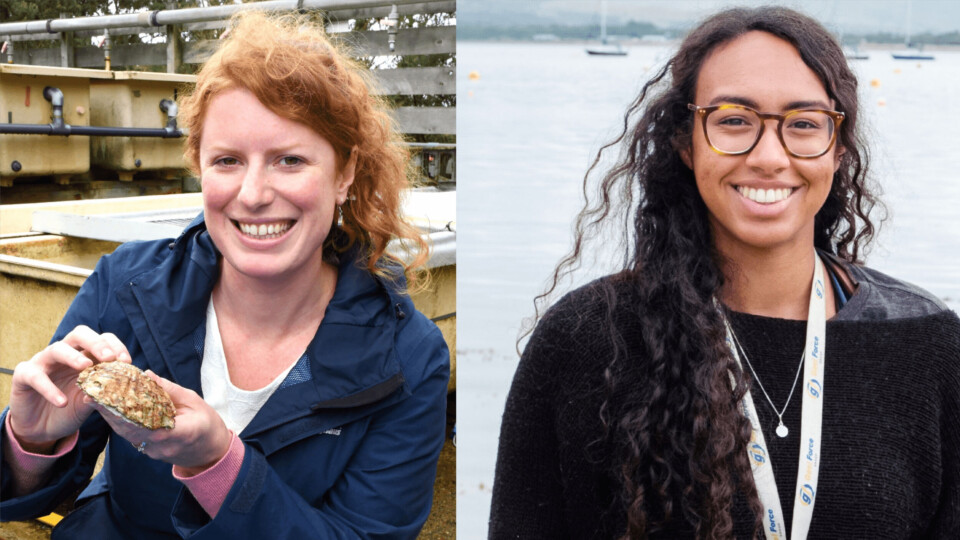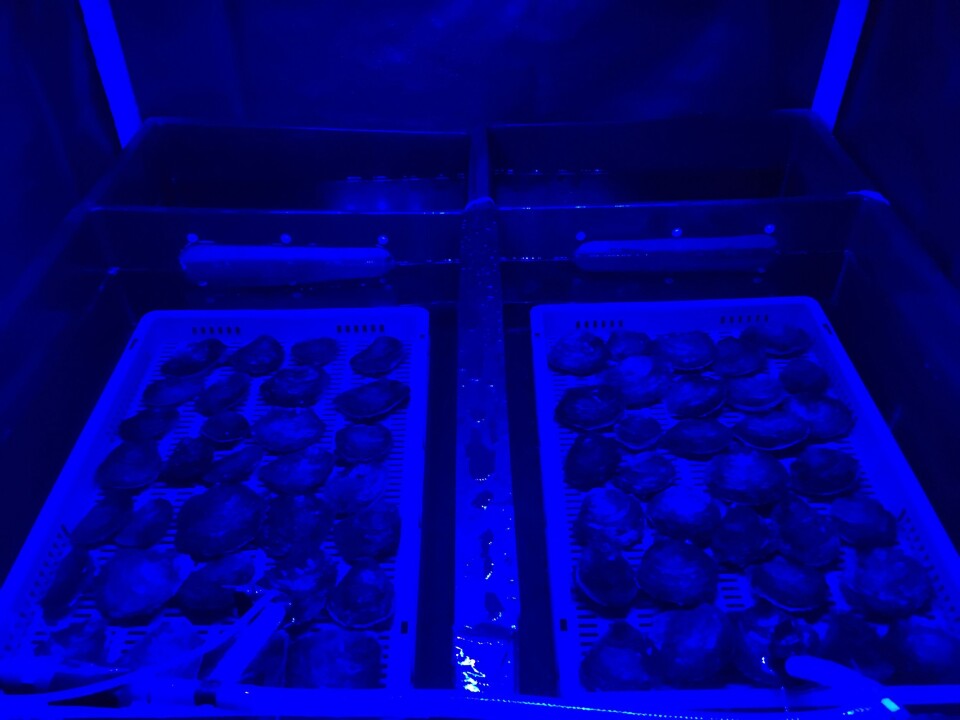
Understanding hormones to improve oyster production
Understanding how oysters respond to the natural environment during reproduction could increase productivity in hatcheries and improve the success of conservation measures, according to a researcher at the Scottish Association for Marine Science (SAMS) in Oban.
Dr Mairi Cowan will spend the next three years investigating hormonal and environmental factors that control the development of bivalves during key life stages, focusing on the native oyster Ostrea edulis. Her €337,400 Neuroshell project is funded by a EU Horizon 2020 Marie Curie Fellowship.
Cowan is currently studying how temperature and light affect the hormones of native oysters and samples their neural and reproductive tissues during the conditioning and spawning period to identify the hormones that are involved in mediating environmental effects on reproduction.

Medley of cues
She said: “Environmental factors are controlling the seasonality of reproduction in oysters through mechanisms of hormone control, but exactly which hormone systems are involved in this transduction is unclear.
“Oysters integrate a medley of cues from the natural environment, which can be difficult to recreate in a captive environment such as a hatchery. This can lead to problems in the synchrony of adults spawning and metamorphosis of larvae into spat.
“At the fundamental level, if you can understand the hormonal control mechanisms of reproduction and how environmental factors are driving these, you can tailor culture conditions to optimise reproductive success in a hatchery. This information can be used not only to increase production but support the conservation of the species.”
Sea bass research
Cowan gained her PhD at Striling University’s Institute of Aquaculture before working for five years at the University of Cadiz in Spain studying brain hormone systems in sea bass. Originally from Kintyre, Argyll, she is enjoying being back on the west coast of Scotland, where oyster production is important.
Cowan is being assisted by MSc student Aaliyah Malla, who is completing her Masters dissertation researching broodstock conditioning of the native oyster.
Malla has been undertaking a Master programme on Aquaculture, Environment and Society, studying for one year at SAMS - a partner in the University of the Highlands and Islands - and six months each at the University of Crete and the University of Nantes.























































